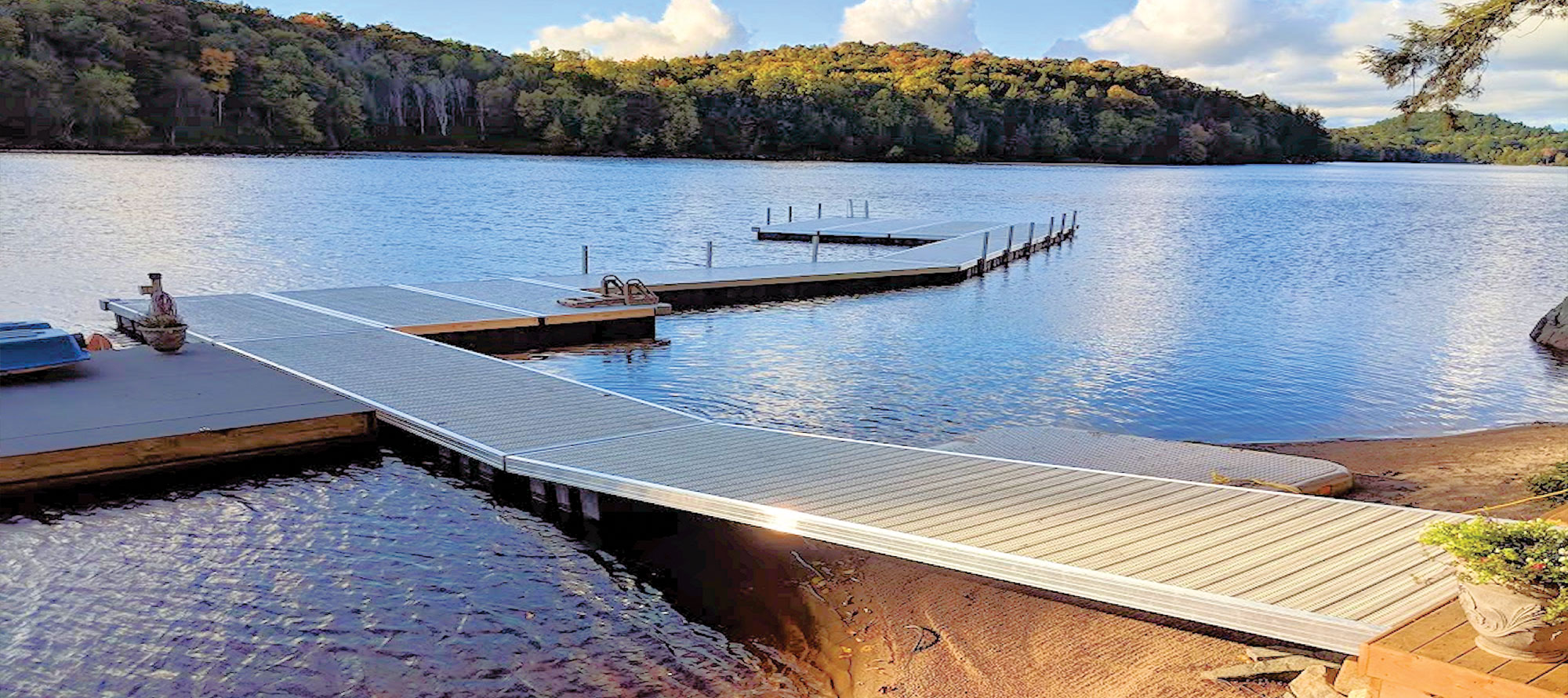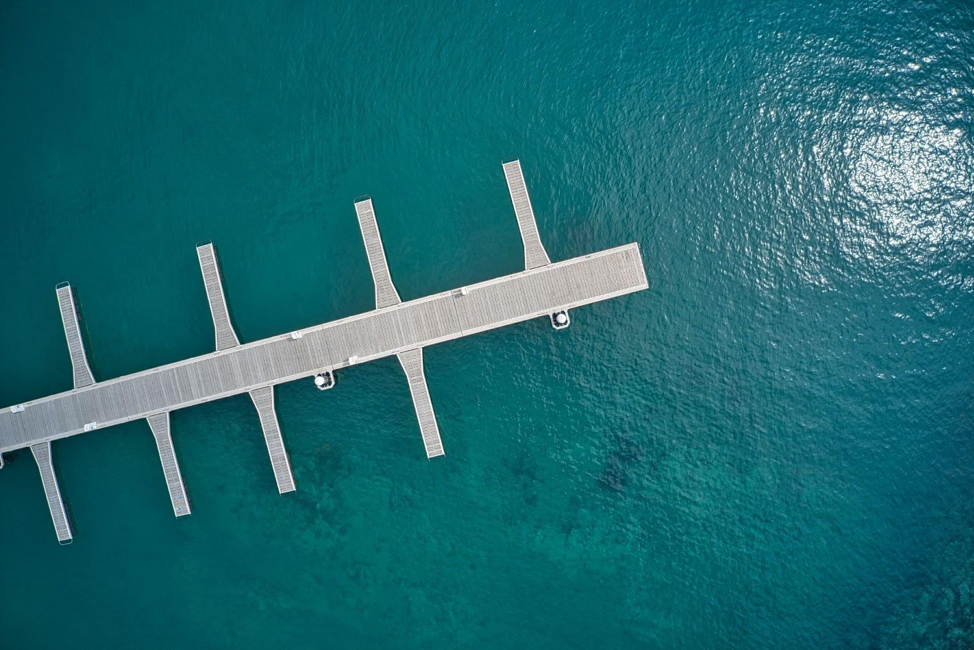Floating Docks: The Suitable Selection for Versatile Water Gain Access To
Floating docks present a compelling service for a variety of water accessibility requires, providing convenience that transcends traditional mooring options. The modular nature of floating docks assists in customization, providing to particular requirements.
Advantages of Floating Docks
Floating docks offer countless benefits that improve water access for various applications. Their ability to drop and rise with changing water degrees makes them especially advantageous in atmospheres with fluctuating trends or seasonal variants. This flexibility ensures that vessels can easily moor without issue for the water's depth, offering a trustworthy platform for leisure, industrial, and commercial usages.
Furthermore, floating docks are usually created from resilient products that resist corrosion, making them appropriate for lasting usage in marine environments. Their setup is commonly much less invasive than standard fixed docks, decreasing the environmental influence and assisting in quicker release (floating dock services). This flexibility enables simpler relocation or reconfiguration according to individual needs or environmental modifications
Safety and security is another crucial benefit; floating docks can provide steady accessibility for individuals boarding or getting off from watercrafts and minimize the risk of mishaps related to unpredictable surfaces. Moreover, they can be made to accommodate a range of devices, such as cleats and fenders, improving capability. Generally, floating docks stand for an efficient service for enhancing water accessibility across diverse sectors while promoting safety and security and environmental sustainability.

Sorts Of Floating Docks
Numerous sorts of floating docks deal with different demands and environments, each created with certain features to enhance functionality. The most usual types include modular docks, which contain interlacing sections that permit easy customization and expansion. These docks are optimal for recreational usage, as they can be tailored to fit various watercraft sizes and water conditions.
One more preferred alternative is the fixed floating dock, which stays anchored in area yet floats with changing water levels. floating docks. This type is specifically matched for locations with very little tidal changes, supplying steady access for angling or swimming. Additionally, there are drive-on docks, which feature a sloped design that permits boats to quickly drive on and off, making them appropriate for personal watercraft and smaller vessels
For business applications, sturdy floating docks are readily available, built from enhanced products to endure substantial loads and extreme aquatic atmospheres. Eco-friendly floating docks use sustainable products and designs to decrease ecological effect, typically integrating attributes like plant life to support local wildlife. Comprehending the different sorts of floating docks guarantees that individuals can select one of the most proper solution for their specific requirements.
Installment Refine Introduction
A successful installment of floating docks calls for cautious preparation and attention to detail to guarantee optimum performance and safety. The first action entails evaluating the site problems, consisting of water depth, present, and potential obstacles. This assessment informs the selection of the ideal dock products and layout tailored to the specific setting.
Following, getting required licenses is important, as lots of jurisdictions have policies relating to building on water bodies. The installation can proceed once approvals are protected. Begin by preparing the structure, go to these guys which might entail anchoring systems or pilings tailored to the dock kind and local conditions.
Adhering to the foundation arrangement, set up the dock sections according to maker requirements. Ensure that all parts are securely fastened and straightened to endure ecological anxieties. Setting the dock in the assigned area, ensuring it is level and steady.

Upkeep Tips and Finest Practices
After the installation process is complete, recurring maintenance plays a crucial function in making sure the durability and capability of floating docks. Regular evaluations ought to be carried out to identify any indications of wear, damage, or wear and tear - floating dock builder. Check for any kind of loose fittings, fractures, or splitting up in the dock sections, as these can compromise architectural integrity
Cleaning the dock is vital to remove debris, algae, and other accumulation that can impact its appearance and safety. Use a mild stress wash regularly to preserve tidiness without creating damages to the surface. Additionally, applying a safety sealer every few years can assist enhance durability and withstand environmental wear.
Take notice of the mooring lines and supports, ensuring they are secure and free from deterioration. Change any abject components immediately to stay clear of dangers. Seasonal changes might also be essential; throughout severe climate problems, enhancing the dock or rearranging can stop damages.
Applications for Floating Docks
Floating docks serve a multitude of applications, satisfying both entertainment and industrial demands. In recreational setups, they provide seamless access to rivers for activities such as boating, angling, and swimming. Their adjustable nature permits installation in varying water levels, making certain stable and secure access despite tidal fluctuations.
Commercially, floating docks are vital for marinas and waterside companies. They promote the docking of vessels, making it possible for reliable packing and discharging of items. Their modular layout enables simple development or reconfiguration to fit transforming service needs, making them suitable for boat leasings, trip procedures, or fishing charters.
Additionally, floating docks are used in environmental applications such as marine study and environment repair. They can function as platforms for scientific research studies, keeping an eye on water high quality, or conducting wildlife studies without disturbing sensitive ecological communities.
In industrial contexts, floating docks are employed in building and construction jobs, offering access to hard-to-reach locations for tools and workers. Their convenience, durability, and very little effect on the atmosphere make them an optimal choice for a vast array of applications, improving both performance and availability in different water-based settings.
Conclusion
In conclusion, floating docks stand for an ideal option for diverse water accessibility needs, owing to their flexibility, toughness, and modular layout. Floating docks serve as a valuable property for click here to find out more leisure, industrial, and environmental tasks, making sure reputable accessibility to rivers and promoting sustainable methods in aquatic settings.
Floating docks present an engaging solution for a selection of water access needs, using adaptability that transcends traditional mooring choices.Floating docks deal various advantages that boost water gain access to for various applications. Overall, floating docks over here stand for an effective service for boosting water accessibility across varied industries while promoting security and environmental sustainability.
An additional popular option is the stationary floating dock, which continues to be secured in location but drifts with altering water degrees.In conclusion, floating docks stand for an optimal remedy for diverse water accessibility needs, owing to their versatility, sturdiness, and modular layout.